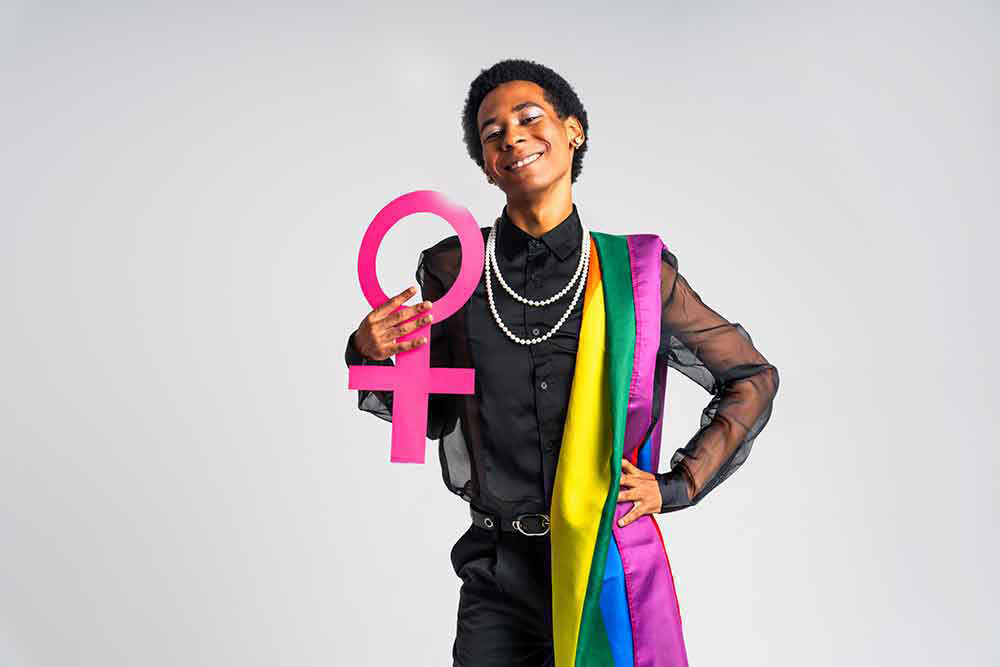Supreme Court Ruling creates mixed feelings from LGBTQ community
The annals of 2023 will forever mark a pivotal moment for the lesbian, gay, bisexual, transgender, and queer (LGBTQ) community in Kenya, thanks to a landmark decision by the Supreme Court that delivered justice. While this ruling provided relief for LGBTQ individuals, a wave of dissent reverberated across the nation as some Kenyans opposed the verdict, condemning the apex court.
 The annals of 2023 will forever mark a pivotal moment for the lesbian, gay, bisexual, transgender, and queer (LGBTQ) community in Kenya, thanks to a landmark decision by the Supreme Court that delivered justice. While this ruling provided relief for LGBTQ individuals, a wave of dissent reverberated across the nation as some Kenyans opposed the verdict, condemning the apex court.
The annals of 2023 will forever mark a pivotal moment for the lesbian, gay, bisexual, transgender, and queer (LGBTQ) community in Kenya, thanks to a landmark decision by the Supreme Court that delivered justice. While this ruling provided relief for LGBTQ individuals, a wave of dissent reverberated across the nation as some Kenyans opposed the verdict, condemning the apex court.
“I am God fearing and although we respect the ruling made by the Supreme Court, we have our culture and traditions. We cannot do down that route …
It can happen elsewhere but not in Kenya.”
President Ruto
The legal saga unfolded when LGBTQ members, faced with rejection by the Non-Governmental Organisations Coordination Board, sought recourse in the courts. The Board had refused to register any of the six names proposed by representatives of the LGBTQ community.
After a protracted ten-year legal battle, on February 24, 2023, the Supreme Court rendered a historic judgment, granting LGBTQ members the right to form associations. Notably, Deputy Chief Justice Philomena Mwilu, alongside Justices Smokin Wanjala and Njoki Ndung’u, ruled in favour of the LGBTQ community. In contrast, Justices William Ouko and Mohammed Ibrahim expressed dissenting opinions.
The minority viewpoint argued against registering an organization promoting what they deemed illegal, given that homosexuality is prohibited in Kenya. The majority decision, however, lamented the discriminatory denial of association rights for the LGBTQ+ community, citing Section 27(4) of the Constitution.
“The State shall not discriminate directly or indirectly against any person on any ground, including race, sex, pregnancy, marital status, health status, ethnic or social origin, colour, age, disability, religion, conscience, belief, culture, dress, language, or birth.”
The court emphasized the unconstitutionality of restricting the right to associate based solely on the sexual orientation of the applicants.
The legal battle originated when the Non-Governmental Organisations Coordination Board rejected the LGBTQ representatives’ proposed names, including the National Gay and Lesbian Human Rights Commission and the Gay and Lesbian Human Rights Council (NGLHRC). NGLHRC had struggled for registration since its establishment in 2012, facing initial rejection in March 2013.
Former Executive Director of NGLHRC, Eric Gitari, contested the rejection, invoking Article 36 of the Constitution safeguarding freedom of association. The High Court, on April 24, 2015, ruled in favour of the LGBTQ+ community, affirming their right to form associations and emphasizing the protection of their human rights.
However, the Non-Governmental Organisations Coordination Board contested this decision, citing the country’s Penal Code criminalizing same-sex relationships. The Board argued that permitting such registration would run afoul of the law criminalizing gay and lesbian unions.
The Supreme Court ruling
Although same-sex marriages remain illegal in the court, people belonging to the community have a right to association.
Same-sex acts remain punishable by up to 14 years in prison.
The Apex court stated that all persons, whether heterosexual, lesbian, gay, intersex, or otherwise, will be subject to sanctions if they contravene existing laws including sections 162, 163, and 165 of the Penal Code.
Section 162 prohibits unnatural offenses which are defined as having carnal knowledge with any man, woman, or animal against the order of nature.
Section 163 sets a penalty of imprisonment for seven years for the offenses in the above section.
Section 165 states;
“Any male person who, whether in public or private, commits any act of gross indecency with another male person, or procures another male person to commit any act of gross indecency with him, or attempts to procure the commission of any such act by any male person with himself or with another male person, whether in public or private, is guilty of a felony and is liable to imprisonment for five years.”
